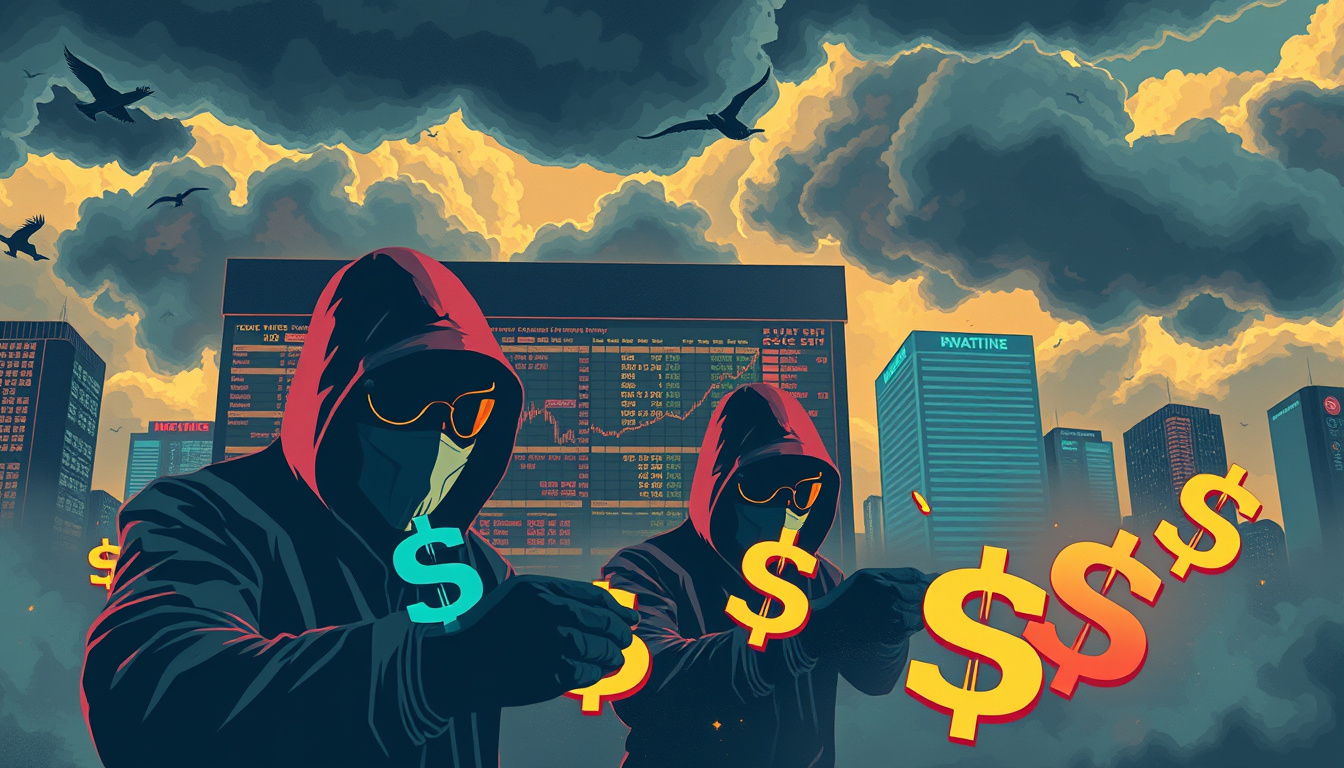The recent $80 million heist on the Iranian cryptocurrency exchange Nobitex has ignited significant concern not just within the crypto community, but also in the broader geopolitical landscape.
As blockchain analyst ZachXBT reported, this alarming breach was initially estimated at $48.65 million, primarily on the Tron network.
However, investigations revealed that the total funds siphoned were much higher, amounting to $81 million, with suspicious activity traced across various EVM-compatible chains.
Nobitex has been transparent with its users, notifying them about unauthorized access to its hot wallets and assuring them that their losses would be compensated through an established insurance fund.
The situation is further complicated by the discovery of a Tron vanity address linked to Iran's Islamic Revolutionary Guard Corps (IRGC), raising serious questions about the exploit's implications amidst rising geopolitical tensions, particularly involving Israel.
Adding to the intrigue, an Israeli hacker group named Gonjeshke Darande has claimed responsibility for the attack, citing Nobitex's alleged support of terrorism and contempt for international sanctions as justifications.
In this article, we will explore the details surrounding the Nobitex heist and delve into its geopolitical ramifications.
Crypto News, Articles and Reports

Key Takeaways
- Nobitex Exchange suffered a significant exploit of over $80 million linked to geopolitical tensions.
- The attack was traced back to a vanity address possibly connected to Iran's IRGC, raising concerns about international sanctions.
- An Israeli hacker group claimed responsibility, alleging Nobitex's involvement in financing terrorism.
Overview of the Nobitex Heist
The Nobitex Heist signifies a staggering breach in the world of cryptocurrency, with the Iranian exchange reportedly losing over $80 million in what has been labeled a sophisticated cyberattack.
Initially, blockchain analyst ZachXBT revealed that $48.65 million had been exploited from wallets operating on the Tron network.
However, as investigations progressed, this figure escalated to an alarming $81 million, underscoring the vast range of suspicious transactions across multiple EVM-compatible chains.
In response, Nobitex promptly notified its users about the unauthorized access to its hot wallets, reassuring them that their losses would be covered by an existing insurance fund, thus reflecting a commitment to customer protection.
Intriguingly, the exploit's origin points back to a Tron vanity address that references Iran's Islamic Revolutionary Guard Corps (IRGC), fueling rumors of geopolitical implications, particularly considering the fraught relationship between Iran and Israel.
Adding another layer to the narrative, an Israeli hacker group known as Gonjeshke Darande claimed responsibility for the attack, justifying their actions by accusing Nobitex of supporting terrorism and defying international sanctions.
This incident not only raises critical questions about the security of cryptocurrency exchanges but also highlights the intricate intersection of finance, technology, and international relations.
Geopolitical Implications of the Attack
The implications of the Nobitex cyberattack extend far beyond the immediate financial losses, stirring a complex dialogue about the intertwining of technological security and geopolitical dynamics.
As cryptocurrencies continue to gain traction worldwide, the vulnerability of exchanges like Nobitex in such high-profile breaches sheds light on the mounting risks associated with digital finance.
The attack's attribution to a hacker group that claims to act in defense of geopolitical interests suggests that such cyber exploits could be utilized as tools in broader political conflicts.
This raises critical discussions about the regulatory landscape governing cryptocurrency, particularly in regions where economic sanctions are prevalent.
Stakeholders, including investors and regulatory bodies, must grapple with the dual challenge of maintaining security while fostering innovation in an environment increasingly vulnerable to cyber threats.
As nations continue to navigate their complex relationships, understanding the role of cryptocurrency in funding and operations of state actors may become essential in the analysis of international peace and security.
By Wolfy Wealth - Empowering crypto investors since 2016
Get Wolfy Wealth Premium
Disclosure: Authors may be crypto investors mentioned in this newsletter. Wolfy Wealth Crypto newsletter, does not represent an offer to trade securities or other financial instruments. Our analyses, information and investment strategies are for informational purposes only, in order to spread knowledge about the crypto market. Any investments in variable income may cause partial or total loss of the capital used. Therefore, the recipient of this newsletter should always develop their own analyses and investment strategies. In addition, any investment decisions should be based on the investor's risk profile.
